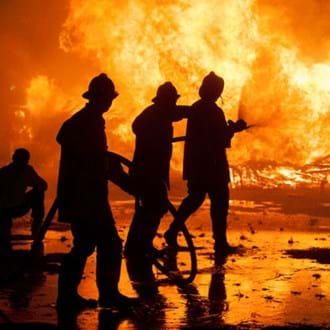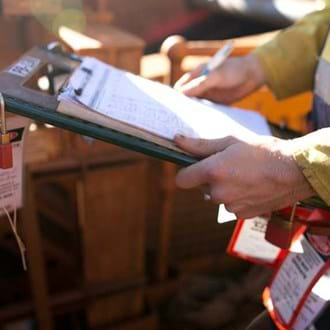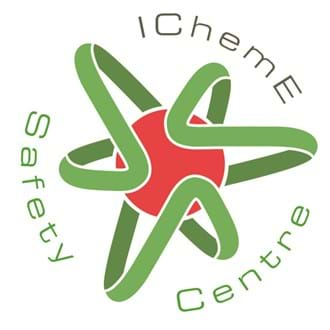Process safety webinars
The ISC periodically host webinars to promote process safety. The recordings are available below to view free of charge.
Search the What's on Directory for upcoming events.

Risk Based Process Safety (RBPS) - Leadership and Culture
What could possibly go wrong? An introduction to process safety leadership aimed at sectors such as food, water, waste, new energy, recycling, mining, minerals and metals.

International Process Safety Day (IPSD) - Adaptive Leadership in Process Safety
Charles Cowley, in conversation with Fiona Macleod, explores the core principles of Adaptive Leadership.

International Process Safety Day (IPSD) - Grenfell Tower Fire 2017
Gill Kernick, in conversation with Fiona Macleod, reflects on the role of leadership in learning from accidents.

International Process Safety Day (IPSD) - Management of Change - How effective is your process?
Laurence Ledrut introduces the new IChemE Safety Centre Management of Change guideline, including its accompanying self‑assessment and auditing tools.

Revisiting the Jonava ammonia tank rupture 35 years on
This webinar explains the generally accepted theory of “thermal overload”, reveals the design error that led to the tank’s unexpected failure, and discusses the increasing importance of emergency management.

The legacy of Flixborough
The Safety and Loss Prevention Special Interest Group and IChemE Safety Centre are joined by Dame Judith Hackitt, Ken Rivers, Robin Turney, Ramin Abhari, and Trish Kerin.

Tacoa power plant boilover
Ewan Stewart is joined by two people involved in the Taco Power Plant boilover response and aftermath.

The pre-start up safety review (PSSR) process
This webinar describes several specific practices and tools that have been proven effective to drive better PSSR and project turnover.

Remembering the Philadelphia gulf refinery fire 50 years on
This webinar reveals why a floating roof storage tank should never be brought “off-float” in error, the importance of effective communication in emergency response, and why there should always be a plan for managing firefighting run-off water.

Evidence based insights about procedural systems and process safety
Camille Peres discusses the Next Generation Advanced Procedures research project from Texas A&M University, highlighting some important new findings in how to write better procedures.

Technical safety planning: case studies of the good and the bad
Laurentiu Zamfirescu and Steve Fogarty, AMOG Consulting highlight the importance and benefits of technical safety planning.

Could PSM have prevented the Chernobyl catastrophe?
This webinar provides analysis on the process safety practices at the station using current tools and methodology.

Manage change, or it will manage you
Brenda Seggerman speaks with Trish Kerin about Management of Change related incidents that she has witnessed in her career and what she has learnt form them.

Effectively removing mercury contamination in oil and gas exploration and production systems
Melanie Windust from ADE Consulting discusses the hazards associated with mercury and methods to safety decontaminate it, for both maintenance activities and safe disposal.

Alarm rationalisation and lead process safety metrics
Garry Law from Safety Solutions talks about alarm rationalisation including referencing the upcoming IChemE Safety Centre Guidance document on metrics for alarm rationalisations.

Delta HAZOP
Trish Kerin talks about getting more out your assessments.

Getting the best from a remote HAZOP
This webinar references the ISC guidance document Good Practice in Virtual HAZOP and looks at remote HAZOPs and how to get the best outcomes.

PFAS risk, where is it and how do we manage it?
Dr Matthew Askeland from ADE Consulting Group discusses the challenges with PFAS contamination and how to manage it.

Hydrogen incidents taxonomy
Laurentiu Zamfirescu discusses the ever-growing concern for global warming and expanding endeavours to reduce our carbon footprint have led to the acceleration of certain energy sectors and technologies.

Equality, diversity and inclusion in safety
Trish Kerin is joined by Macsene Isles-Ahite, one of IChemE's Trustees and David Lloyd-Roach, IChemE Director, Qualifications to discuss the importance of equality, diversity and inclusion in achieving safety outcomes.

Lead metric: permit to work checks performed to plan and permit to work non-conformance
Zsuzsanna Gyenes, IChemE Safety Centre and Carolyn Nicholls, RAS Limited discuss the IChemE Safety Centre’s supplementary publication on Lead Metrics: Permit to Work.

Over the top: process safety lessons related to liquid level in process vessels and tanks
Garry Law discusses some of the reasons why level instruments misread or their output is misunderstood and how this can lead to overfilling a vessel or tank.

Lessons from regulators
Trish Kerin discusses key lessons with two former regulators.

Process safety leadership and how to have some fun
Trish Kerin shares her insights on process safety leadership, using fun storytelling to achieve great process safety outcomes.

Process safety concepts
Trish Kerin discusses the ISC framework for process safety and how it applies for various process safety concepts.

Natural hazards triggering technological disasters - Natech
Trish Kerin explores the issues with preparing for Natech events.

Understanding the difference between occupational health and safety and process safety
Zsuzsanna Gyenes gives some useful information as to what do we mean by area and guide the students through case studies which will help them to implement the learnings.

The human side of process safety
Trish Kerin explores human factors through the lens of a series of high profile process safety incidents.

Remote and virtual risk assessment - impacts of COVID-19
Trish Kerin discusses the current best practices for managing risk assessments during the COVID-19 pandemic.

Lead process safety metrics: pressure relief devices
Steve Fogarty and Zsuzsanna Gyenes talk about lead process safety metrics.

Why training is not enough when it comes to competency
Trish Kerin discusses how competency is obtained, from initial training to practice and experience.

Applying process safety during concept select
Trish Kerin explores the concept select phase outlined in the document.

Human factors and culture in process safety through cave diving
Trish Kerin talks about cave diving and how it is planned and organised.

Process safety application and culture for other industries
Trish Kerin discusses the elements of process safety that failed on the Dreamworld Thunder River Rapids Ride incident.

Business continuity and safe shutdown
Zsuzsanna Gyenes. Zsuzsanna discusses what actions you can take to safely operate your plant during these unprecedented times.

Leadership and safety in uncertain situations
Trish Kerin discusses the importance of leadership and what actions you can take to help your teams perform at their best during these unprecedented times.

Learning from creeping changes
Zsuzsanna Gyenes, deputy to the Director ISC, focuses on learning from incidents relating to creeping changes via two case studies from two different sectors.

Control room competency
John Bresland, former chair of the US Chemical Safety and Hazard Investigation Board (CSB) will explore the importance of having qualified and trained process technicians working in oil refineries and chemical plants.

What Longford taught me about process safety
Mike Connell, Principal Safety Analyst with the Major Hazards Program of WorkSafe Victoria talks about how the incident at Longford and its aftermath shaped his growing understanding of the importance of process safety.

How to learn more from accidents
Nancy Leveson, Professor of Aeronautics and Astronautics at MIT, describes a systems approach to accident prevention.

Incident investigation and how to avoid common pitfalls
David Ramsey, Managing Director of Kelvin TOPSET, shares his vast experience in investigations.

Remembering Bhopal — what have we learnt?
The IChemE Safety Centre produced a special member webinar to mark the 30th anniversary of the Bhopal tragedy.

Normalisation of deviance
This webinar explores the cultural aspects of normalising deviance through the Columbia case study, and draws links to main stream process safety incidents.

Process safety culture
This webinar discusses the BP Texas City refinery incident and safety culture with panelist Dr Paul V Tebo, a member of the Baker Panel.

Lead metrics
Trish Kerin explores the lead metrics outlined in the document.

Pike River leadership, culture and design
This webinar discusses the Pike River Coal Mine disaster on its 5th anniversary.

Achieving world-class process safety performance
John Bresland joins Trish Kerin to discuss his key learnings from investigating incidents from his time at the CSB as well as his long career in process safety.

Management by targets
This webinar explores the issues associated with management by targets and how this has the potential to impact safety outcomes.